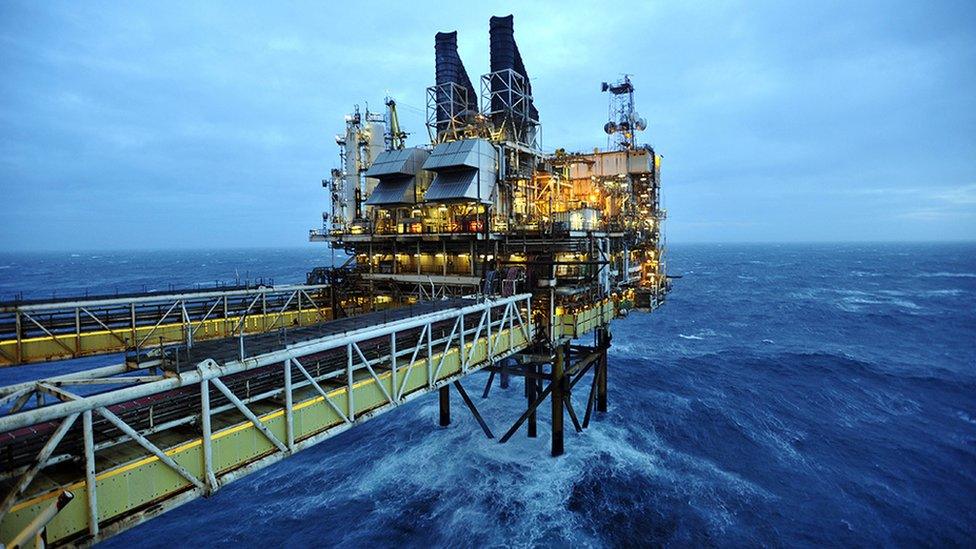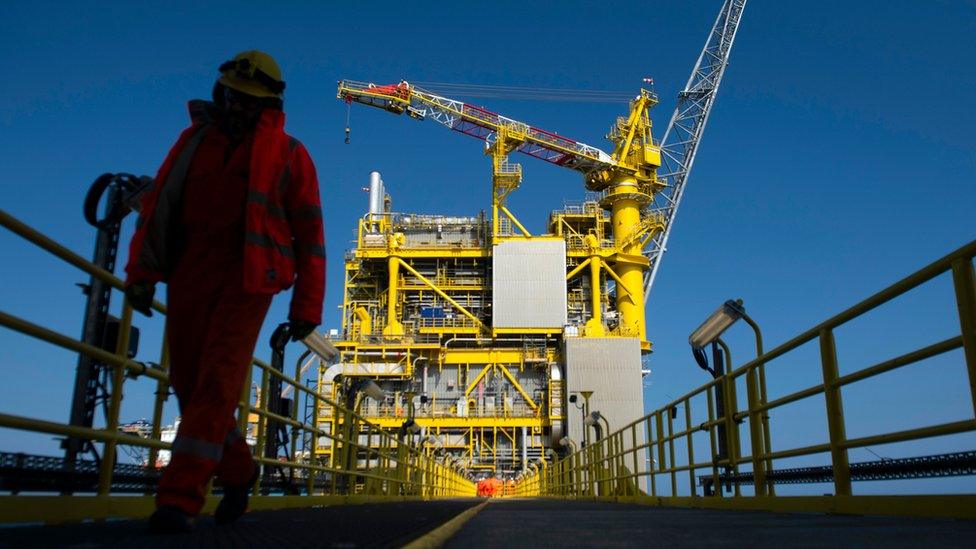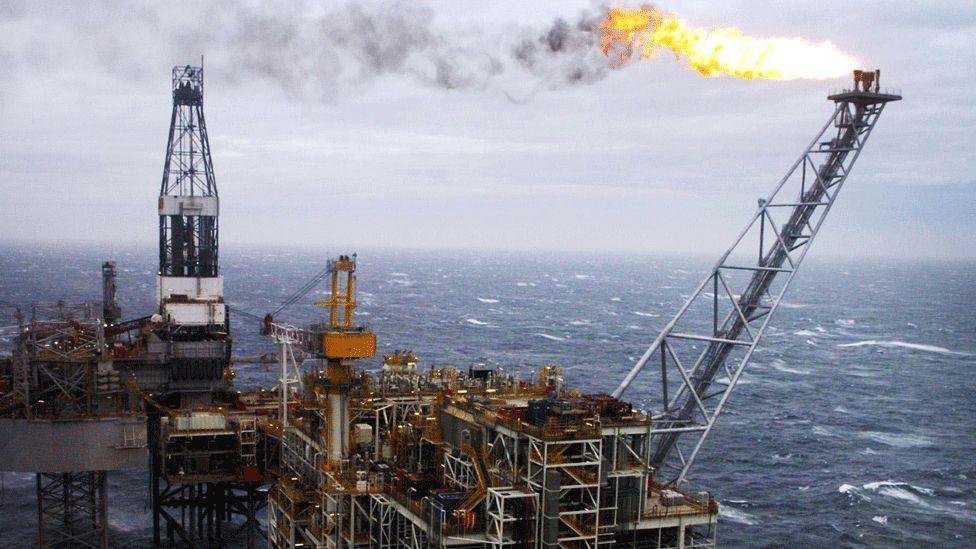Plans lodged for Rosebank oil field near Shetland
- Published

Plans have been lodged to develop a major oilfield north west of Shetland.
Norwegian state-controlled oil company Equinor said the Rosebank field could produce almost 70,000 barrels of oil a day at its peak.
The company said it would do so with the "lowest possible carbon footprint".
But environmental campaigners argued that the development would be a "total betrayal" of the UK's climate goals, with Greenpeace vowing to "fight Rosebank every step of the way".
Equinor said that if production started in 2026, then Rosebank could account for 8% of the UK's total oil production between then and 2030.
It has been predicted that Rosebank could produce 69,000 barrels of oil a day at its peak, and about 44 million cubic feet of gas per day in its first 10 years.
Equinor and its project partners say they will invest around £80m to ensure that the development, about 80 miles north west of Shetland, would be powered with electricity.
It has predicted that the project could create more than 1,600 jobs at the height of construction, and could generate £24.1bn of gross value add (GVA) over its lifetime. It aims to make a final investment decision on the field in the first quarter of 2023.
Equinor senior vice-president Arne Gurtner said the firm was committed to net-zero by 2050.
But he added: "For the next few decades oil and gas will continue to play a vital role alongside low-carbon systems.
"Therefore, while we still need oil and gas, we aim to develop and operate projects such as Rosebank with the lowest possible carbon footprint while bringing the maximum value to society in the shape of UK investment, local jobs and energy security."

Industry body Offshore Energies UK said it would benefit UK energy security and the Scottish economy.
However, Uplift - which campaigns for a fossil fuel-free UK - said the Rosebank field would be twice the size of the controversial Cambo development.
It claimed that investing in the field would reduce the amount Equinor has to pay under the government's windfall tax on energy companies.
Uplift director Tessa Khan said: "Rosebank will mean a massive transfer of wealth from the British people to one of the richest petrostates in the world.
"Approving Rosebank would be a total betrayal of both the government's climate goals and the British public, who face a severe recession while oil and gas companies make outrageous profits."
Greenpeace has already have brought a legal challenge over the planned Jackdaw development in the North Sea.
Philip Evans, of Greenpeace UK, said: "If Rosebank goes ahead, it will do nothing to help drivers or households with rising costs, because the oil doesn't belong to the UK and goes to a global market.
"We will fight Rosebank every step of the way, and urge the government to crack on with quick, cheap solutions that will actually help in the cost-of-living crisis and the climate emergency - renewables, home insulation and heat pumps."
Related topics
- Published24 May 2022

- Published3 November 2021
